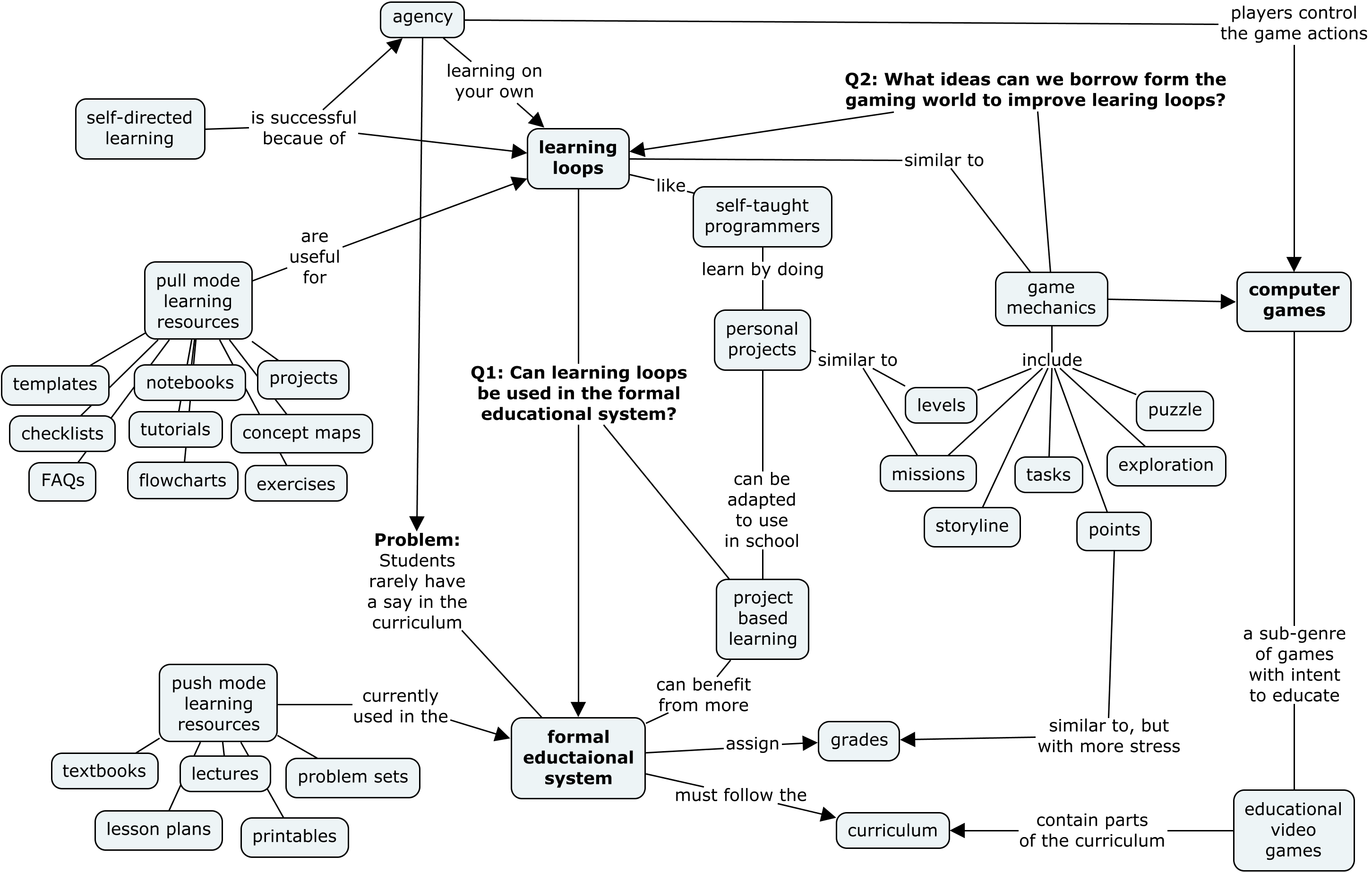I was talking with friends recently about an interesting phenomenon that all self-taught programmers have observed, which we ended up calling “learning loops.” A learning loop is a process in which learners are motivated to advance their knowledge thanks to the positive feedback on their performance.
In this blog post, I want to look at the mechanics that make learning loops work and think about ways they could be used by teachers, private tutors, and publishers to build learning experiences in which learners have more agency and control over their learning. We’ll also look at the related phenomenon of game mechanics that exists in certain “addictive” computer games. Figure 1 contains a visual summary of the ideas we’ll discuss in this blog post. The two main questions we’re interested in are: “What can teachers within the formal educational system learn from autodidacts?” and “What can autodidacts learn from the gaming industry about staying motivated?”
In the second part of the blog post we’ll think about the role of teachers and educational resources in supporting and reinforcing learning loops. I’m writing this mostly as a self-reflection and welcome comments by other educators, content creators, and learning experience designers interested in this phenomenon.
Figure 1: The main question I’m interested in thinking about is how to introduce aspects of self-directed learning into the formal educational system, in order to give students more agency over their learning process.
